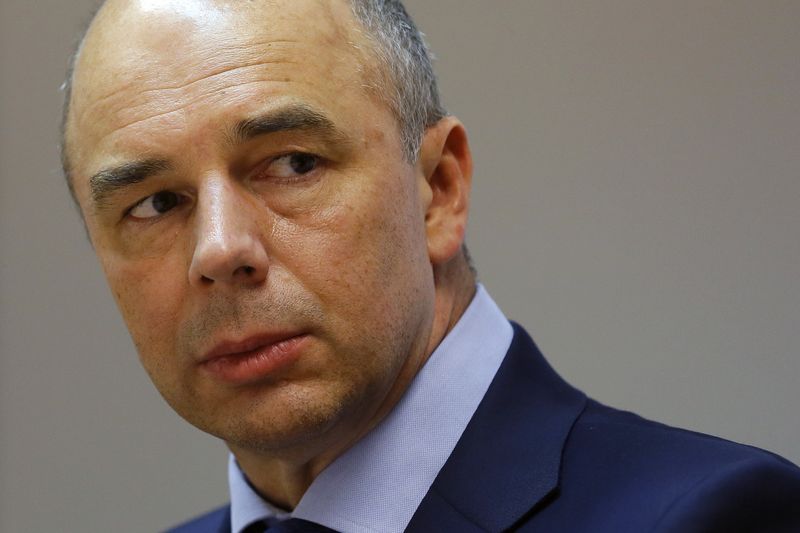MOSCOW (Reuters) - Russia's government intends to spend at least 2.34 trillion roubles (23 billion pounds) to help the economy withstand Western sanctions and the collapse in oil prices, according to a plan which implies the final cost could be much higher.
Only 22 of the 60 items were costed, suggesting that the final cost of the plan may be much more than 2.34 trillion roubles, which is the combined costs of the items that had been assigned financing. The plan said that these costs were still subject to government discussion.
Russia's Finance Minister Anton Siluanov said on Tuesday that the plan wouldn't add to total budget expenditures, because of budget reserves and cutbacks elsewhere.
Some major items are being financed from the National Wealth Fund, an $80 billion sovereign fund that had previously been assigned to fund infrastructure projects.
Among the priority measures, the largest single item is a 1 trillion rouble programme to recapitalise banks through the issue of government bonds, which has already been funded from last year's federal budget.
The plan included a separate scheme to help recapitalise some banks with 250 billion roubles from the National Wealth Fund.
The National Wealth Fund would also provide 300 billion roubles to Vnesheconombank, the state development bank, to increase "lending to organisations of the real sector".
The plan included 200 billion roubles in state guarantees of loans of bonds needed "for carrying out investment projects," as well as other goals approved by the government such as debt restructuring.
Other major items included 160 billion roubles in federal loans to help regional governments, as well as 188 billion roubles to finance an indexation of pensions.
Dozens of smaller or uncosted items in the plan included subsidies and tax breaks to industrial enterprises, small businesses and agriculture.
Among the uncosted items, the plan said the government would collect proposals for creating a 'bad bank' to ring fence problematic banking assets by Jan. 30.
The plan also said that the government aimed to cut "the majority" of its planned expenditures by 10 percent in 2015 except for defence, social spending and debt repayments, with a view to balancing the budget by 2017.
It said that investment resources in the budget would be concentrated on projects that had already been started, with some new projects to be delayed.
